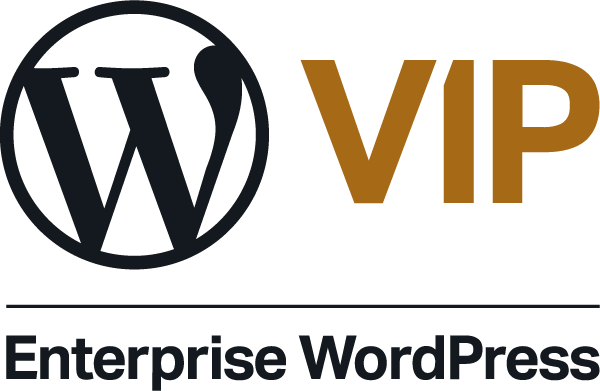Getting everyone into the COVID-19 vaccination queue

Countries have made huge efforts to access and distribute vaccines – but to achieve ‘herd immunity’, they need to get them into the arms of the majority of their adult population. Catherine Early investigates the ‘vaccine hesitancy’ that threatens to slow countries’ exit from the COVID-19 crisis, and asks how public servants are working to address it
Back in January 2019, the World Health Organisation (WHO) published its assessment of the top 10 health threats globally. Along with diseases such as dengue and HIV, it named issues including antimicrobial resistance, air pollution – and vaccine hesitancy.
“The reluctance or refusal to vaccinate despite the availability of vaccines threatens to reverse progress made in tackling vaccine-preventable diseases,” it stated. And the WHO’s warning proved prescient: within a couple of years, governments worldwide would be seeking to vaccinate their entire adult populations against a new disease.
As they do so, governments must maximise uptake – for no vaccine is 100% effective in protecting individuals: the goal is to achieve such widespread protection that the disease struggles to spread through the population, ultimately fading away. So coverage is key not only to cutting the numbers falling seriously ill in the short term, but also to reducing the threat of infection over the long term.
Sometimes, the reasons why people don’t take up the offer of a vaccine are innocuous, according to Lisa Menning, technical officer in the WHO’s Department of Immunization, Vaccines, and Biologicals. “Where we’ve taken a closer look at data on the reasons for low uptake, the main reasons are related to access, availability and affordability – sometimes even in high income countries, where typically we assume it’s easy for people to get vaccinated. If you’re a mother of three juggling two jobs, it’s not the highest priority in your schedule,” she says. “The important thing is for vaccine delivery programmes to be designed to be so easy and convenient that they’re almost impossible for someone to pass up.”
Conspiracy theories
But other people lack confidence in the safety and benefits of vaccination, says Menning, or are influenced by friends, family or trusted members of their community. And throughout the pandemic, people have been spreading misinformation about both the illness and the vaccines.
Heidi Larson, director of the Vaccine Confidence Project – established in 2010 by medical institutions worldwide to provide cross-disciplinary research on the issue – believes that a lack of public trust in institutions such as governments and the pharmaceutical industry provides fertile ground for conspiracy theories rapidly transmitted and amplified by social media platforms.

For example, she says, the idea that COVID-19 vaccines contain microchips tap into people’s anxiety about being monitored or controlled. Given these suspicions, she warns against putting any pressure on people to get vaccinated: best instead to use it “as an opportunity to be concerned, not just about them getting a jab in their arm, but to say: ‘How are you doing?’… ‘What are some of your other health needs?’ I think we have to position it as an opportunity for people, not a requirement,” she said in a podcast.
Rising confidence
There is evidence, though, that people’s concerns are fading as they see friends and family vaccinated safely. Research by the University of Bristol and King’s College London found that half of nearly 5,000 UK adults who said in late 2020 that they would definitely not get a COVID-19 vaccine have now had a jab. Among those who said they were not very likely or not at all likely to accept a vaccine, 84% have since been vaccinated. And confidence is also rising among ethnic minority groups, where vaccine hesitancy tends to be higher: last year, just 36% of ethnic minority respondents said they were certain or very likely to get vaccinated, but that figure now stands at 72%.
Nonetheless, some groups remain sceptical: the research highlighted concerns within the UK’s Muslim community, where rumours have spread that vaccines contain pork products or might render people infertile. The proportion of Muslims saying they’re likely to get vaccinated has risen from 23% to 67% in a year, but still stands well below the figure of 94% among Anglicans.
The difference is not due to religious belief itself, says Dr Siobhan McAndrew, senior lecturer in quantitative social science at the University of Bristol, but to social and cultural attitudes: 61% of Anglicans say they have a great deal of trust in the NHS, she notes, but this figure drops to 39% of Muslims.
So Islam does not present an obstacle to vaccination; indeed, many mosques have hosted pop-up vaccination centres, with imams urging people to get a jab. Working with community and religious leaders, says McAndrew, can address people’s particular interests and help reassure the uncertain. For example, some Muslim groups have been offered vaccines outside daylight hours, allowing them to eat before having a jab during Ramadan.
Overall, she says, those people who initially lacked information on vaccines have often warmed to the idea; however, those who object to vaccination in principle have been less likely to change their minds. “Concern over long-term side effects was the most important reason for these people,” she says.
Trusted messages
Some governments have supported such community initiatives at a national level. In Canada, while running a comprehensive multimedia communications campaign, the government is also encouraging people to share their own stories on social media about why they are getting vaccinated using the hashtag #MyWhy, according to Dr Howard Njoo, deputy chief public health officer at the Public Health Agency of Canada. “Storytelling is a way to promote vaccine uptake as people can be motivated by those around them, like healthcare professionals and peers,” he says.
In addition, the government has set up the Vaccine Community Innovation Challenge to provide funding for creative, community-driven projects to increase vaccine confidence. Initially, the funding was for 20 projects to receive C$25,000 (US$20,000) each, with C$100,000 (US$80,000) for an overall winner. Overwhelming interest and the high quality of proposals submitted, says Njoo, persuaded the government to increase the funding to cover an extra 120 projects, with grants of either C$5-10,000 (US$4-8,000).

Pierre Delsaux, deputy director general at the European Commission’s health directorate, believes that the best way to combat hesitancy is by being honest and transparent. “The point is not to try to force people, just simply to explain to them about vaccination, and to point out fake news,” he says. He gives the example of the concerns raised in many EU countries about blood clots from the Oxford-AstraZeneca vaccine. “We should not say there is zero risk, because that is never the case. So we explain that despite the fact that there are certain risks, the benefits are much bigger; that’s the message we’re trying to convey.”
The fact that vaccination rates are continuing to rise is evidence that this message has been effective, he believes; though he cautions that we won’t know just how effective it’s been until younger people – who are much less likely to be hospitalised with COVID-19 – have all been offered a vaccine.
Passports to freedom?
Some governments – including Sweden, Singapore and Estonia – have been issuing vaccine certificates to allow citizens to travel overseas without needing to take a COVID-19 test; Israel even introduced a system to control access to domestic events and venues. However, some fear that such measures could feed the conspiracy theorists’ narrative that governments have a hidden agenda.
Vaccine certificates should be a last resort, says Menning. “Choice is important to people, so forcing people into accepting vaccination is not always the best thing to do, and there may be some who become even more inclined to refuse that vaccine because they feel like their choice is being taken away,” she says.
Certainly, the KCL/Bristol University survey found that people who were vaccine hesitant were far more likely to be negative towards the introduction of certificates. Three quarters of these respondents believed that passports would infringe on civil liberties, compared with just under a third of the overall public. There was a similar divide in opinion on whether the passports would be used by the government for surveillance (63% versus 21%) and whether they’d lead to discrimination against unvaccinated people (71% versus 40%).
However, others are more positive about the potential impact of certificates. In the EU, vaccine certificates will allow citizens to travel across the bloc without needing a PCR test; and Delsaux reports that friends of his children say they’ll get a jab to travel easily.
“It will be an incentive, because even if you don’t like it, it’s a way to get access to certain activities which you don’t have otherwise,” he says. “I’m not too pessimistic: I’m sure that, at the end of the day, most people will see the benefits of vaccination and they will accept it.”
























I was one of those that in the beginning not for the vaccine. However, after thinking about the strides in technology and how things rapidly are invented, I decided to take the jab. To say that my fears are completely gone will be an understatement of the fact. But I think that for the future the vaccine is better than just waiting to see the outcome and get caught not having something to help with the ease of the pain and the isolation of family and friends. c